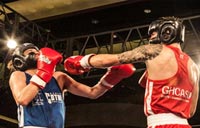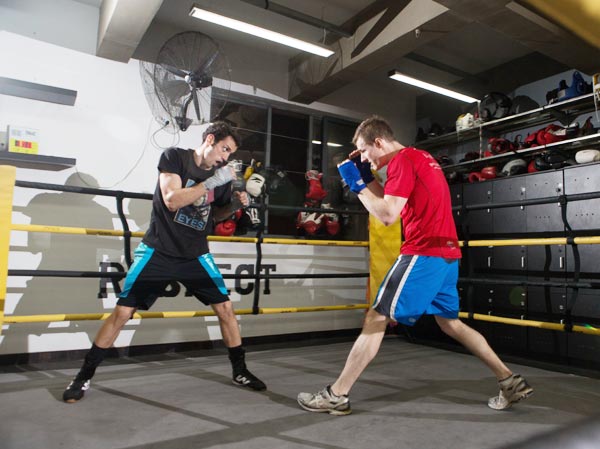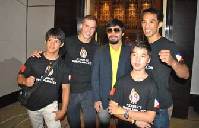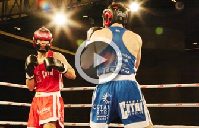Clocking out, punching in
 |
| White-collars, black eyes |
| Beijing's fight club |
Giving to charity is a big part of it. True to tradition, Benis has raised 1.5 million yuan for The
Foundation for Newborns with Respiratory Failure since launching the brawls in December 2008.
Auction items this time include a pair of autographed Manny Pacquiao gloves and holidays in Mauritius and Fiji. Guests book tables of 10 for 12,000-16,000 yuan each for the black-tie, four-course-dinner event. Full-length white ermines and Snoop Dogg-style accessories are optional.
At Golden Gloves, the boxers progress from jumping rope to footwork, punches and lethal combos. Of the 60 or so hopefuls who initially show, about 30 percent drop out after two weeks.
"That's the litmus test," says Benis. "We lose another 10 percent by week six because it's so demanding physically and time-wise. But after that, for those who stay, it's full on."
After a month they are divided into two camps – red against blue – who don't meet again until fight night. It sounds a bit cloak-and-dagger. "No spying allowed," says Chang.
"We don't push them to fight at close range because uppercuts can be very intimidating if you're new to the sport," says Xiong. "The focus is long-or medium-range, a few 1-2 combos or maybe 1-2-3-4 including a hook." The golden rule is: Always keep your hands up.
"You'd be surprised at how good some people get in three months. About 10 percent pick it up really quickly," adds Benis. "But most of these guys will be throwing straight punches come fight night. Not too many combos."
All of the signs indicate that WBC is growing at a decent clip. The World White Collar Boxing Association (WWCBA) was launched in London in 2012, when England saw its largest event staged in the city of Bristol. As celebrities picked up the mantle, even funny man Ricky Gervais of "The Office" fame gloved up and began lashing out with his fists instead of his tongue.



















